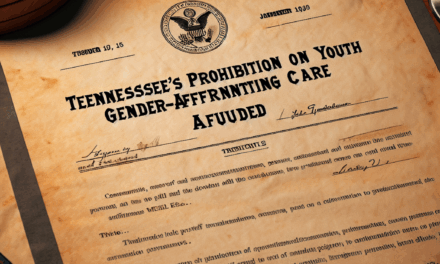Eli Lilly Joins J&J in Legal Battle Against Biden Administration Over 340B Rebates
The pharmaceutical industry is no stranger to legal battles, especially when it comes to government regulations and pricing strategies. Recently, Eli Lilly has joined forces with Johnson & Johnson (J&J) in a significant legal confrontation against the Biden Administration over the 340B Drug Pricing Program. This article delves into the intricacies of this legal battle, exploring the motivations, implications, and potential outcomes for all parties involved.
Understanding the 340B Drug Pricing Program
The 340B Drug Pricing Program, established in 1992, is a federal program in the United States that requires drug manufacturers to provide outpatient drugs to eligible healthcare organizations and covered entities at significantly reduced prices. The program aims to enable these entities to stretch scarce federal resources as far as possible, reaching more eligible patients and providing more comprehensive services.
Under the 340B program, pharmaceutical companies are mandated to sell drugs at a discount to healthcare providers that serve a large number of uninsured or low-income patients. These providers include community health centers, children’s hospitals, and other safety-net hospitals. The savings generated from these discounts are intended to be used by the providers to improve patient care and expand services.
However, the program has been a subject of controversy, with drug manufacturers arguing that it has expanded beyond its original intent, leading to financial losses and market distortions. On the other hand, healthcare providers and advocates argue that the program is essential for maintaining access to affordable medications for vulnerable populations.
The Role of the Biden Administration
The Biden Administration has taken a firm stance on healthcare reform, aiming to expand access to affordable medications and healthcare services. As part of this effort, the administration has sought to enforce stricter compliance with the 340B program, ensuring that drug manufacturers adhere to the pricing requirements and that the benefits of the program reach the intended populations.
In response to perceived non-compliance by some pharmaceutical companies, the administration has issued guidance and taken legal action to enforce the program’s rules. This has led to increased tensions between the government and drug manufacturers, culminating in the current legal battle involving Eli Lilly and J&J.
Eli Lilly and J&J’s Legal Challenge
Eli Lilly and J&J have joined forces in a legal challenge against the Biden Administration’s enforcement of the 340B program. The companies argue that the administration’s actions are overreaching and infringe upon their rights as private entities. They contend that the program’s expansion has led to unintended consequences, including financial losses and market distortions.
The legal challenge centers around the administration’s efforts to enforce compliance with the 340B program, particularly regarding the pricing of drugs sold to covered entities. Eli Lilly and J&J argue that the administration’s actions violate their rights under the Administrative Procedure Act (APA) and the Constitution.
The companies have filed lawsuits in federal court, seeking to block the administration’s enforcement actions and obtain a declaratory judgment that the administration’s actions are unlawful. The outcome of these lawsuits could have significant implications for the future of the 340B program and the pharmaceutical industry as a whole.
Key Arguments from Eli Lilly and J&J
Eli Lilly and J&J’s legal arguments focus on several key points:
- Overreach of Executive Authority: The companies argue that the Biden Administration has exceeded its authority by imposing new requirements and enforcement actions without proper legislative backing.
- Violation of the APA: The lawsuits claim that the administration’s actions violate the APA by failing to follow proper rulemaking procedures and by implementing policies that are arbitrary and capricious.
- Constitutional Concerns: The companies contend that the administration’s actions infringe upon their constitutional rights, including due process and equal protection under the law.
These arguments form the basis of the legal challenge, with Eli Lilly and J&J seeking to protect their interests and challenge what they perceive as an overreach by the federal government.
Implications for the Pharmaceutical Industry
The legal battle between Eli Lilly, J&J, and the Biden Administration has far-reaching implications for the pharmaceutical industry. The outcome of this case could set a precedent for how the 340B program is enforced and how drug manufacturers interact with government regulations.
If Eli Lilly and J&J are successful in their legal challenge, it could lead to a reevaluation of the 340B program and its enforcement mechanisms. This could result in changes to the program’s structure, potentially reducing the financial burden on drug manufacturers and altering the dynamics of drug pricing in the United States.
On the other hand, if the Biden Administration prevails, it could strengthen the government’s ability to enforce compliance with the 340B program and other healthcare regulations. This could lead to increased scrutiny of pharmaceutical companies and potentially more stringent requirements for participation in federal programs.
Potential Impact on Drug Pricing
The legal battle also has implications for drug pricing in the United States. The 340B program is designed to provide discounted drugs to healthcare providers, which can help reduce the overall cost of medications for patients. However, drug manufacturers argue that the program’s expansion has led to unintended consequences, including higher prices for non-340B entities and reduced incentives for innovation.
If the legal challenge is successful, it could lead to changes in how drug prices are set and negotiated, potentially impacting the affordability and accessibility of medications for patients. This could have ripple effects throughout the healthcare system, affecting patients, providers, and payers alike.
Case Studies and Examples
To better understand the implications of the legal battle over the 340B program, it is helpful to examine case studies and examples of how the program has impacted healthcare providers and patients.
One notable example is the case of a community health center in a rural area that relies heavily on the 340B program to provide affordable medications to its patients. The center serves a large number of uninsured and low-income individuals, and the savings generated from the 340B program are used to fund essential services such as primary care, mental health counseling, and substance abuse treatment.
Without the discounts provided by the 340B program, the center would struggle to maintain its current level of services, potentially leading to reduced access to care for its patients. This example highlights the importance of the 340B program for safety-net providers and the potential impact of changes to the program’s enforcement.
Impact on Patients
The legal battle over the 340B program also has significant implications for patients, particularly those who rely on safety-net providers for their healthcare needs. The program is designed to help providers stretch their resources and improve access to care for vulnerable populations, but changes to the program could impact the availability and affordability of medications for these patients.
For example, if drug manufacturers are successful in their legal challenge and the 340B program is scaled back, patients who rely on discounted medications may face higher out-of-pocket costs. This could lead to reduced adherence to prescribed treatments and poorer health outcomes, particularly for individuals with chronic conditions or complex medical needs.
Conversely, if the Biden Administration prevails and the program’s enforcement is strengthened, it could lead to increased access to affordable medications for patients, improving health outcomes and reducing disparities in care.
Conclusion
The legal battle between Eli Lilly, J&J, and the Biden Administration over the 340B Drug Pricing Program is a complex and multifaceted issue with significant implications for the pharmaceutical industry, healthcare providers, and patients. The outcome of this case could shape the future of drug pricing and access to care in the United States, with potential ripple effects throughout the healthcare system.
As the legal proceedings unfold, stakeholders across the industry will be closely watching to see how the courts interpret the issues at hand and what impact the final decision will have on the 340B program and beyond. Regardless of the outcome, this case underscores the ongoing tensions between drug manufacturers and government regulators, highlighting the need for continued dialogue and collaboration to address the challenges facing the healthcare system.




